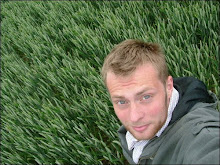It's taken me a while to get around to posting this, but...
I was in London on 1st August for the Carnaval del Pueblo, the city's annual celebration of Latin American cultures and communities in the city – and the largest outdoor Latin American festival in Europe.
I hooked up with an old TEFL buddy to enjoy the sun, salsa and four stages of live music in Burgess Park.
This year’s Carnaval was special as it celebrated two hundred years of independence for many Latin American nations.
For our own little celebration on the blog – a little nod to Latin America – I’ve brought together Sue Allsworth, an English teacher based in Peru, and Ed Zaghini from Outside In World, the UK organization set up to promote children’s books in translation.
Sue is in charge of English language teaching at Domingo Savio primary school in Ayacucho. The city has a difficult history as the former heartland of Shining Path terrorism, but these days receives increasing attention from foreign NGO’s and travellers. It’s a long way from Sue’s home town of Folkestone.
‘England always felt like a pair of jeans that didn’t quite fit,’ she says. ‘But when I came to Ayacucho five years ago, it felt like a really special place. Nowhere is perfect, but you have to find somewhere where you’re most content.’
Sue had a qualification to teach English as a Foreign Language when she arrived in Peru, but her vocation took time to fully develop. ‘I became a language teacher because it was a way of staying here. I found out I was good at it, and actually enjoy it…Here, I get to make a difference in the world, and now I’m here for the job as much as the place.’
Sue and her business partner Gloria, a primary teacher with 9 years of experience, had each independently planned to establish their own school in the city. When they joined forces, the director of Domingo Savio, an existing primary school, licensed them to use the school’s name in their district.
Today, they offer primary and pre-school teaching in English and Spanish, with activities to develop English language and vocabulary hand-in-hand with the Spanish-language curriculum. It’s a demanding role for both teachers.
‘I must love my job so much,’ says Sue. ‘From 7.30 in the morning I teach adult classes before the children arrive. School runs from 10 until 3 pm, and then we have homework classes right through until seven-thirty or even later. Sometimes it’s hard to get away from the school site!'
Sue’s entrepreneurial attitude and sheer determination to make a difference in a remote and impoverished country has been very rewarding, from the five-year-old pupil who greets her with an impeccable ‘Good afternoon, how are you Miss Sue?’ to children who find the atmosphere of the school supportive and liberating.
‘Local kids with tough backgrounds flourish and develop in the school environment and find the security to be emotionally open,’ she says. ‘Even kids who have relatively good lives materially face emotional challenges.’
While Sue has taken a little piece of the UK with her to South America, the team at Outside In World are bringing the cultures of the world to Britain by promoting literature in translation.
Tying in with our Latin American theme, Ed Zaghini was kind enough to recommend a book by a Chilean author, from the selection at the Outside In World website:
'When I Was a Boy, Neruda Called Me Policarpo is by the Chilean author Poli Delani. Poli was born in 1936 and at that time his family was living in Spain where they become friends with the Chilean poet Pablo Neruda and his wife.
'Between 1940 and 1943, Neruda and his wife lived in Mexico City. This memoir is set at this time and follows Neruda’s relationship with the young Poli – and his adventures and misadventures.
'In this book you will learn about Poli and his encounters with the most amazing animals and insects; of his experience of being bullied in a boarding school where he had to stay when the family and Neruda travelled to New York.
'Perhaps the most touching story is that of Poli wanting to buy a fountain pen and a watch and in order to find the money he decided to sell chewing gum at the cinema and clean cars in the car park. When the poor children saw him taking over their job, they violently sent him away. Poli was very angry and frustrated by the incident but his parents and Tio (uncle) Neruda calmly explained that those children needed the job to eat while his motives where purely superficial.
'This memoir is full of facts about Neruda: his passion for collecting things and the time spent in the antique markets in Mexico City looking for strange objects to add to his unique and growing collection; his very strange food habits, including insects and monkeys. But what clearly stands out here in this memoir is his touching relationship with a very young boy.
'There are six of Neruda’s poems included in the book and a short biography of the poet that will clearly serve to introduce his life and work to younger generations. Manuel Monroy’s illustrations perfectly match the spirit of the text.'
You can find more on When I Was a Boy, Neruda Called Me Policarpo at the Outside In website, here. Thanks to Ed at Outside In World for recommending this book!
Subscribe to:
Post Comments (Atom)

No comments:
Post a Comment